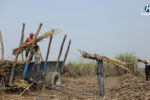The government is bracing up for the third Nepal Investment Summit starting from March 29. It will showcase about sixty projects requiring an investment of around USD 30 billion. However, nothing can be said whether foreign investors will be interested to invest in these projects. Lessons from past events tell us that heavy foreign investment cannot be realized until there is a sound investment climate in the country.
The first investment summit in 1992 did bring some foreign investment so that the country achieved a growth rate of seven percent. The second investment summit held in 2017 was able to bring only USD 180 million out of USD 14 billion committed. The low level of investment corresponds to the low level of credibility of the government and poor investment climate.
As of 2011, Nepal had the highest minimum wage in South Asia (US$83.76 per month), followed by Pakistan (US$82.17 per month), India (US$ 64.07 per month), Sri Lanka (US$51.22 per month), and Bangladesh (US$40.46 per month).
Access to market, transparent and predictable legal environment, security, and quality infrastructure are some of the preconditions to attract foreign investment in any country. Unfortunately, none of these elements in Nepal are in good shape. Despite its location in the middle of giant markets, Nepal is unable to reap benefits either from the huge Indian or the Chinese market.
Exports of Nepalese products to the Indian market is not easy. It is an open secret of how India discourages exports of Nepalese products. Often Nepalese goods are held at the Indian checkpoints along the border disrupting the smooth flow of goods. Neither the prospective foreign investors nor the diplomatic missions stationed in Kathmandu are uninformed of this fact.
Nepal lags far behind compared to its South Asian neighbors in terms of its infrastructure development. For example, while India’s road density is 142 km per 100 square km, Nepal’s road density is only 34 km per 100 square km. Similarly, Nepal’s rank is 117th in world infrastructure quality index compared to the 27th position of Sri Lanka, and the 61st position of India. It is not just the case of roads, other infrastructures such as electricity, water supply, and communication are also not strong enough to attract FDI.
Another obstacle in inviting FDI in the country is the low labor productivity but high minimum wage of Nepalese labors. In the past, we said that investors will come to Nepal thanks to its low labor cost. But currently, the labor cost of Nepal is one of the highest in the region. As of 2011, Nepal had the highest minimum wage in South Asia (US$83.76 per month), followed by Pakistan (US$82.17 per month), India (US$ 64.07 per month), Sri Lanka (US$51.22 per month), and Bangladesh (US$40.46 per month).
According to the Global Wage Report 2018/2019, the average real wage growth for the period of 2008-2017 in Nepal is 4.7 per month that is slightly less than in India (505%) and more than in Sri Lanka (4%), Bangladesh (3.4%), and Pakistan (1.8%).
Forthcoming investment summit is being organized without improving the investment climate. As evidenced by the recent doing business report, the environment for business and investment is deteriorating in the country.
On the other hand, according to the Asian Productivity Organization (APO) databook 2017, the productivity of Nepalese labor is only 21% compared to that of Sri Lankan labor and 46% in contrast to the Indian labor. High minimum wage and low productivity make production in Nepal very costly.
The third major obstacle to invite FDI in Nepal is its fragile security situation. Extortion, frequent strikes, rowdy and militant trade unions are common in Nepalese industrial sector. The recent bombing in the Ncell premises and the government’s decision to ban the ‘Biplab’ led Maoist party has again raised suspicion on the security situation of the country.
Governance-related issues such as rampant corruption, lengthy entry and exit process for companies, lengthy visa process for foreign workers etc. are other hurdles for foreign investment. It is found that a foreign worker needs to put more than 30 signatures in terms of paper works for obtaining work permit and visa. Besides, it takes as much as 3 months to complete the process.
Forthcoming investment summit is being organized without improving the investment climate. As evidenced by the recent doing business report, the environment for business and investment is deteriorating in the country.
It appears that the government selected the projects to be showcased in the summit without thorough homework. For an investor, a genuine reason for investing in Nepal at this time could be to benefit from India’s removal from Generalized System of Preferences (GSP) program by the USA, and from the India-China trade conflict. Yet, the dream of FDI influx in the country is least likely to materialize given the existing investment climate.
Given the stark reality of investment climate, the upcoming investment summit bespeaks of a mere ritual that the government is happy to perform with full fanfare. However, as a responsible citizen, we welcome the investors in Nepal hoping that they may perhaps persuade the government to create an enabling environment for making another such summit a success.
Views expressed in this article are the author’s own and do not necessarily reflect the stance of Khabarhub.









Comment